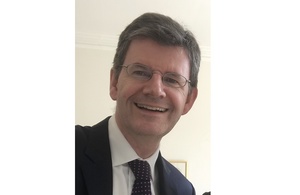Current restrictions on group sizes will be lifted to allow schools, colleges and nurseries to fully reopen to all children and young people, as Covid-19 infection rates continue to fall.
Covid-19 secure measures will remain in place to reduce the risk of transmission, with schools being asked to keep children in class or year group sized ‘bubbles’ and encourage older children to keep their distance from each other and staff where possible. This is alongside protective measures such as regular cleaning and handwashing.
Where there is a positive case in a school or college, the Public Health England local health protection team will advise on the appropriate action, which could include small groups of young people and staff being asked to self-isolate for up to 14 days. Where there are two or more confirmed cases in a two-week period, health protection teams may ask a larger number of other children or young people to self-isolate at home as a precautionary measure.
Where an outbreak in a school is confirmed, for specific detailed investigations a mobile testing unit may be dispatched to test others who may have been in contact with the person who has tested positive. Testing will first focus on the person’s class, followed by their year group, then the whole school if necessary.
All staff, pupils and their families will continue to have access to testing if they develop Covid-19 symptoms and schools will be provided with easy to use home testing kits for children and staff who would otherwise be unable to get a test.
Schools will be expected to have plans in place to offer remote education to pupils who are self-isolating.
For nurseries, childminders, and other early years providers, restrictions on group sizes will be lifted from 20 July, increasing capacity from the start of the summer holiday.
Education Secretary Gavin Williamson said:
I know these past three months have been some of the most challenging that schools have faced. What they have achieved to make sure that young people are kept safe and can continue to learn during this period is remarkable, and I am incredibly grateful for that.
Nothing can replace being in the classroom, so ever since schools, colleges and nurseries closed to most children, we have been working hard to ensure they can reopen as soon as possible. We have already seen more than 1.5 million children and young people return, but we must make sure all pupils can go back to school in September, giving them the opportunity to thrive and fulfill their potential.
I want to reassure parents and families that we are doing everything we can to make sure schools, nurseries, colleges and other providers are as safe as possible for children and staff, and will continue to work closely with the country’s best scientific and medical experts to ensure that is the case.
The guidance published today (2 July) provides schools, colleges and nurseries with the details needed to plan for a full return, as well as reassuring parents about what to expect for their children. The guidance has been developed in close consultation with the sector and medical experts from Public Health England.
Deputy Chief Medical Officer, Dr. Jenny Harries, said:
Thanks to the hard work of everyone, including our teachers and all school staff, there has been a decline in the rate of COVID-19 transmission in our communities.
A child’s education is essential to their healthy development – we know that missing too much school can have a negative impact on children’s mental and physical wellbeing.
Everybody wants children to be safe and thankfully as we have learned more about COVID-19, the evidence has shown that the risk of severe disease in children is low. However, although the number of COVID-19 cases has declined, it is still in general circulation – so it important we ensure schools implement sensible precaution to reduce potential transmission of COVID-19 and minimise any risk to teachers and their pupils.
Schools will need to work with families to secure full attendance from the start of the new academic year, with the reintroduction of mandatory attendance.
To ensure pupils can catch up on lost learning, schools will be required to resume teaching a broad and balanced curriculum in all subjects, making use of existing flexibilities to create time to address gaps in knowledge. Schools should consider how all subjects can contribute to filling gaps in core knowledge.
This will help pupils catch up and will work alongside the financial support provided to primary and secondary schools through the Government’s £1 billion Covid catch-up package. This is on top of the £14 billion that we are investing in schools over the next three years.
Exams will take place in 2021 and Ofqual is consulting on arrangements for those exams, including measures to mitigate any impact on pupils from time out of school.
Alongside this, Ofsted will carry out visits to schools in the autumn term to discuss how they are supporting the return to education for their pupils, with routine inspections planned to restart in January 2021.
Nurseries and other early years providers, including childminders, have already been welcoming back children of all ages since 1 June, with a range of protective measures in place. From 20 July, restrictions on group sizes for nurseries, childminders and other early years providers will be lifted, increasing capacity for more children to return, as set out in updated guidance published today.
The schools guidance sets out a range of measures to protect children and staff. This guidance applies to all mainstream schools, alternative provision, independent schools and boarding schools and sets out advice on how they can minimise contact and mixing. Separate guidance has also been published for special schools.
Schools should implement class or year sized bubbles, as well as encouraging staff and pupils, where they are able, to keep their distance from each other and avoiding touching. All schools should work to implement other policies in line with their own risk assessment and in a way that ensures pupils can be taught a broad and balanced curriculum. Other measures set out in the guidance include:
- teachers to distance from each other and older students where possible
- increasing the frequency of cleaning
- reducing the use of frequently shared items
- minimising contact in corridors

